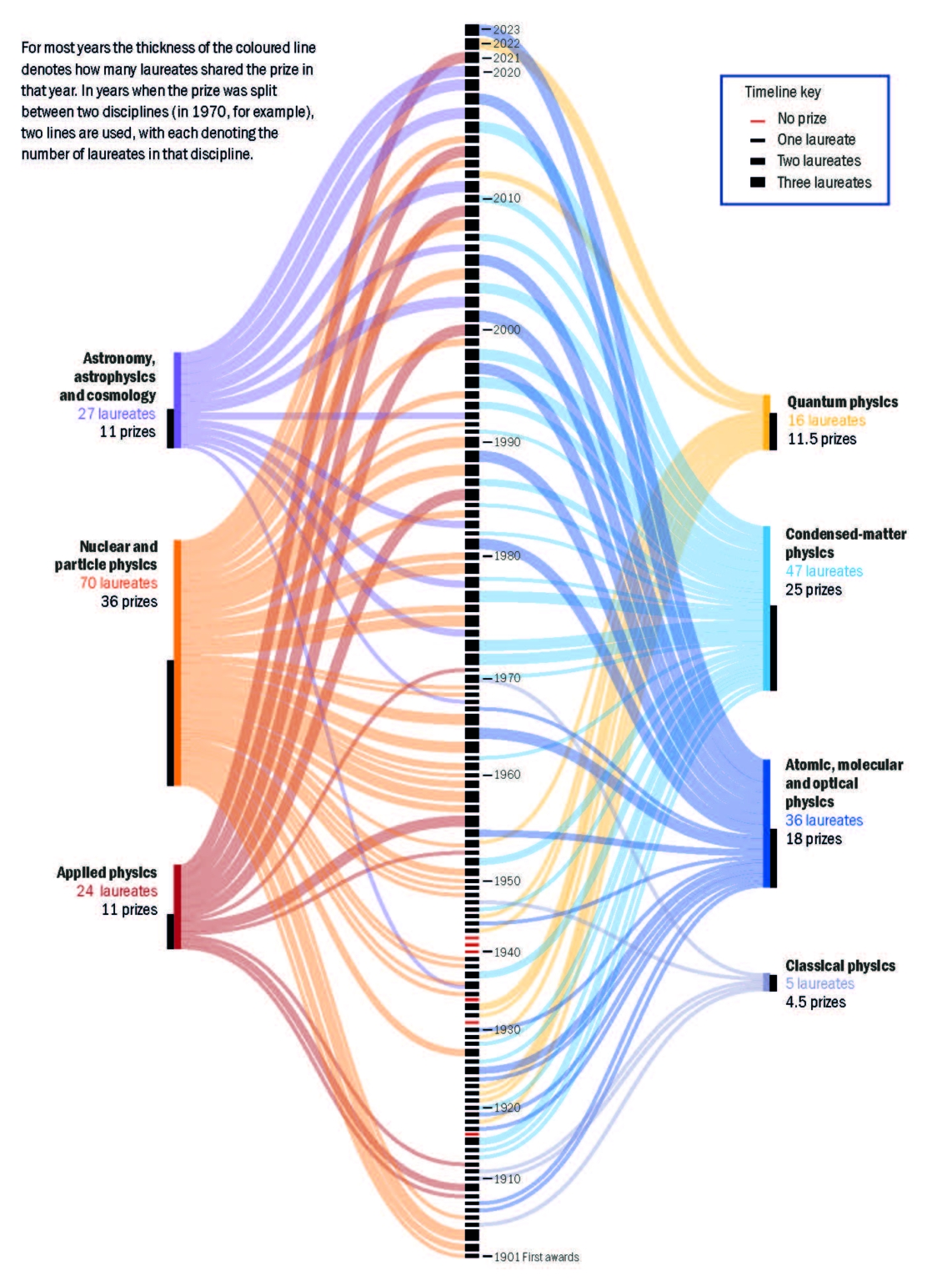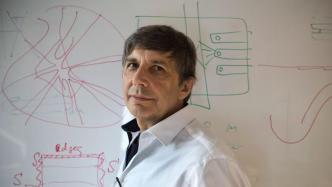
On October 8, 2024, the Nobel Prize in Physics will be announced in Sweden, with the winners sharing a prize of 11 million Swedish kronor (approximately 7.45 million RMB). Over the past century, the Physics Prize has been the most awarded to Chinese individuals, with notable recipients including Yang Chen-Ning, Tsung-Dao Lee, Samuel Ting, C.N. Yang, Chien-Shiung Wu, and Gōng-Kūn Dīng, among others.
Who will take home this year's Nobel Prize in Physics? The British Institute of Physics' Physics World website has compiled a list of past winners, highlighting fields like astronomy, astrophysics, and cosmology, where 27 individuals have won 11 awards; applied physics, where 24 individuals have also won 11 awards; and atomic, molecular, and optical physics, with 36 winners sharing 18 awards. Physics World believes that condensed matter physics is deserving of recognition, with potential topics including magic-angle graphene and metamaterials. The magic-angle phenomenon is currently on the cutting edge of research in condensed matter physics and quantum materials.

Fields of physics that have received the Nobel Prize in Physics. Image credit to the British Institute of Physics' Physics World website
Historical Overview of the Nobel Prize in Physics
Since its inception in 1901, a total of 117 Nobel Prizes in Physics have been awarded. Among these, 47 were awarded to individuals, 32 to two laureates jointly, and 38 to three laureates sharing the prize.
From 1901 to 2023, there have been 225 Nobel Laureates in Physics. To date, the youngest recipient is Lawrence Bragg, who won in 1915 at just 25 years old for "analyzing crystal structures using X-rays," alongside his father, William Henry Bragg.
The oldest laureate is Arthur Ashkin, an American physicist who shared the 2018 Nobel Prize in Physics at the age of 96 for "groundbreaking inventions in laser physics."
John Bardeen is the only person to have won the Nobel Prize in Physics twice, receiving the honor in 1956 and again in 1972.
Among the 224 Nobel Laureates in Physics, only five have been women: "Marie Curie," Marie Goeppert Mayer, Donna Strickland (2018), Andrea Ghez (2020), and Anne L'Huillier (2023), a professor at Lund University in Sweden.
Marie Curie has achieved the remarkable distinction of winning the Nobel Prize twice. In 1903, she, along with her husband and Becquerel, received the Nobel Prize in Physics for their research on radioactivity. In 1911, she was awarded the Nobel Prize in Chemistry for her discovery of the elements polonium and radium, becoming the first person ever to receive two Nobel Prizes.
Recent Nobel Winners in Physics Over the Past Five Years
The 2023 Nobel Prize in Physics was awarded to Pierre Agostini, Ferenc Krausz, and Anne L'Huillier, recognizing their "experimental methods that generate attosecond pulses for studying electron dynamics in matter."
The 2022 award went to Alain Aspect, John Clauser, and Anton Zeilinger for their contributions to quantum information science research. They demonstrated that Bell's inequalities do not hold in the quantum realm through photon entanglement experiments, pioneering the field of quantum information.
The 2021 Nobel Prize in Physics was awarded to Japanese-American scientist Syukuro Manabe and German scientist Klaus Hasselmann for their work on "physical modeling of Earth's climate, quantifying variability, and predicting global warming reliably," with the other half going to Italian scientist Giorgio Parisi for discovering the interplay between disorder and fluctuations in physical systems from atomic to planetary scales.
The 2020 Nobel Prize in Physics was split, with half awarded to Roger Penrose for demonstrating that "black hole formation is a robust prediction of general relativity," and the other half jointly awarded to Reinhard Genzel and Andrea Ghez for discovering a supermassive compact object at the center of the Milky Way galaxy.
In 2019, the Nobel Prize went to James Peebles, Michel Mayor, and Didier Queloz for their groundbreaking contributions to our understanding of the universe. Peebles received half the prize for his "theoretical discoveries in physical cosmology," while Mayor and Queloz shared the other half for "discovering an exoplanet orbiting a sun-like star."

